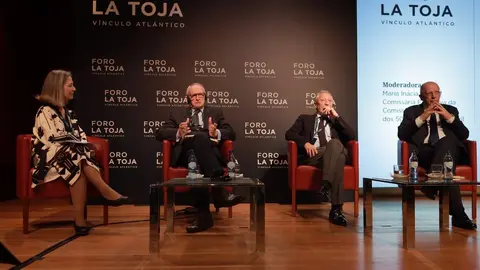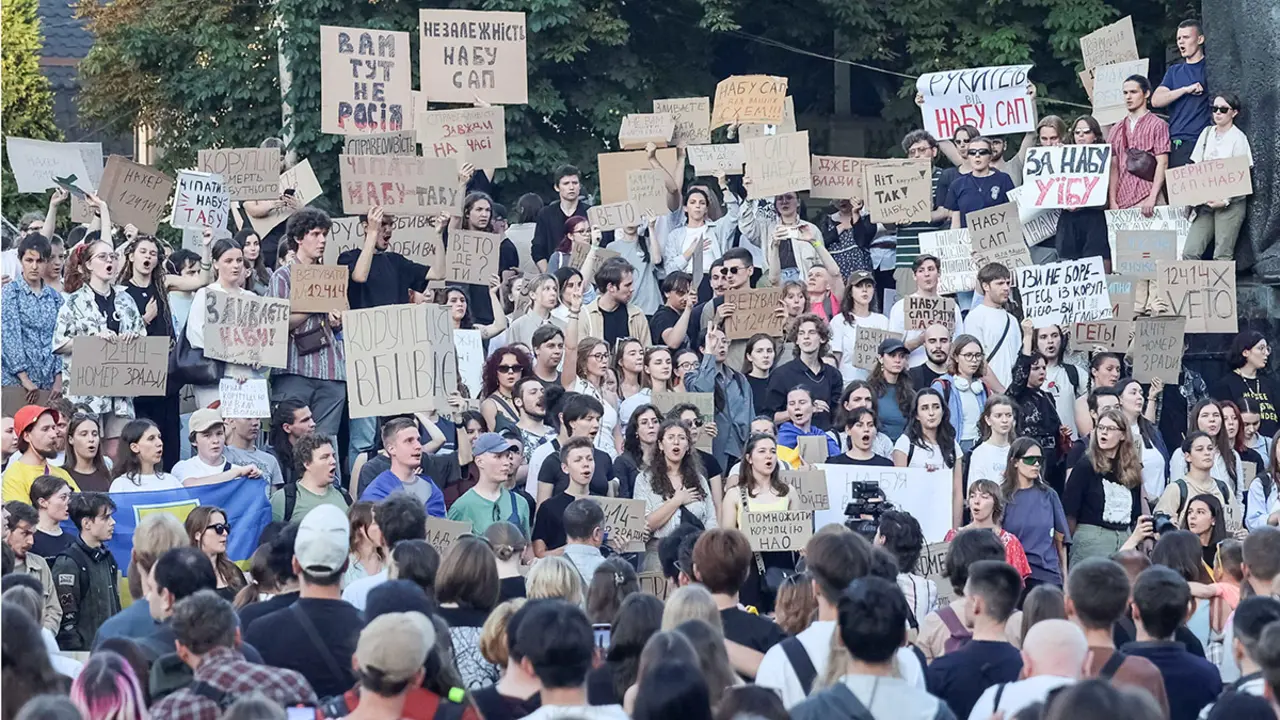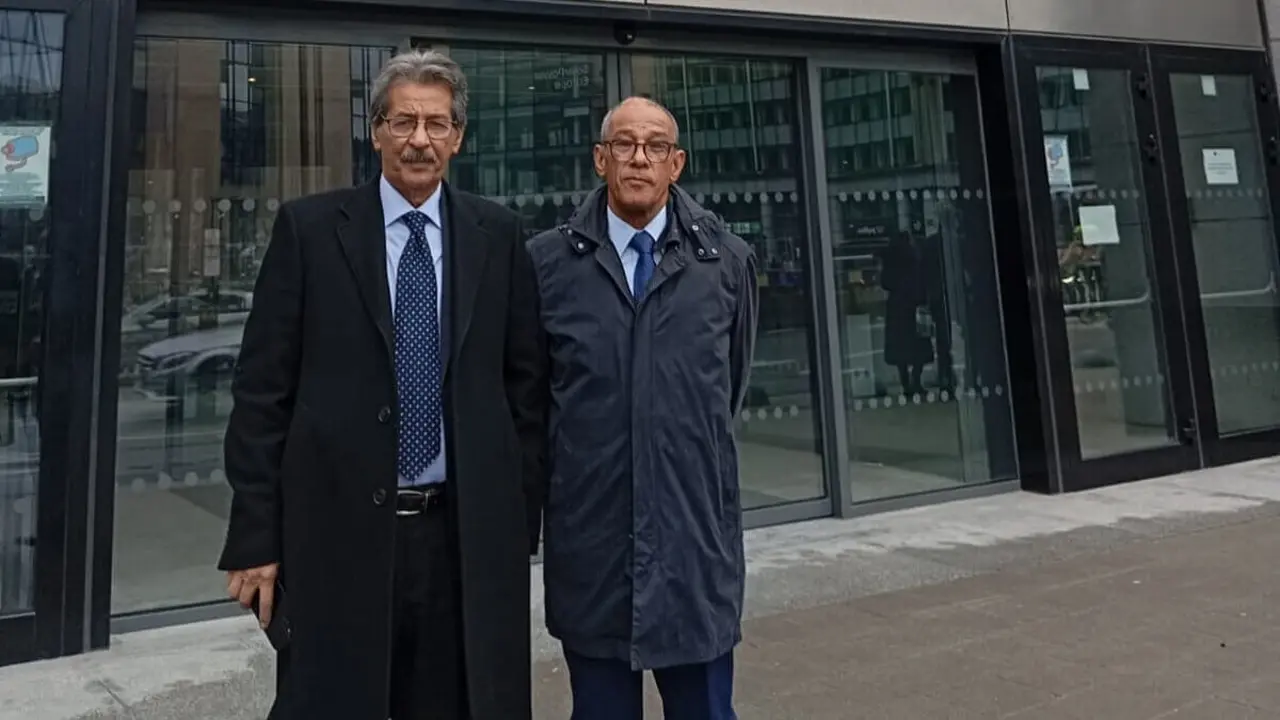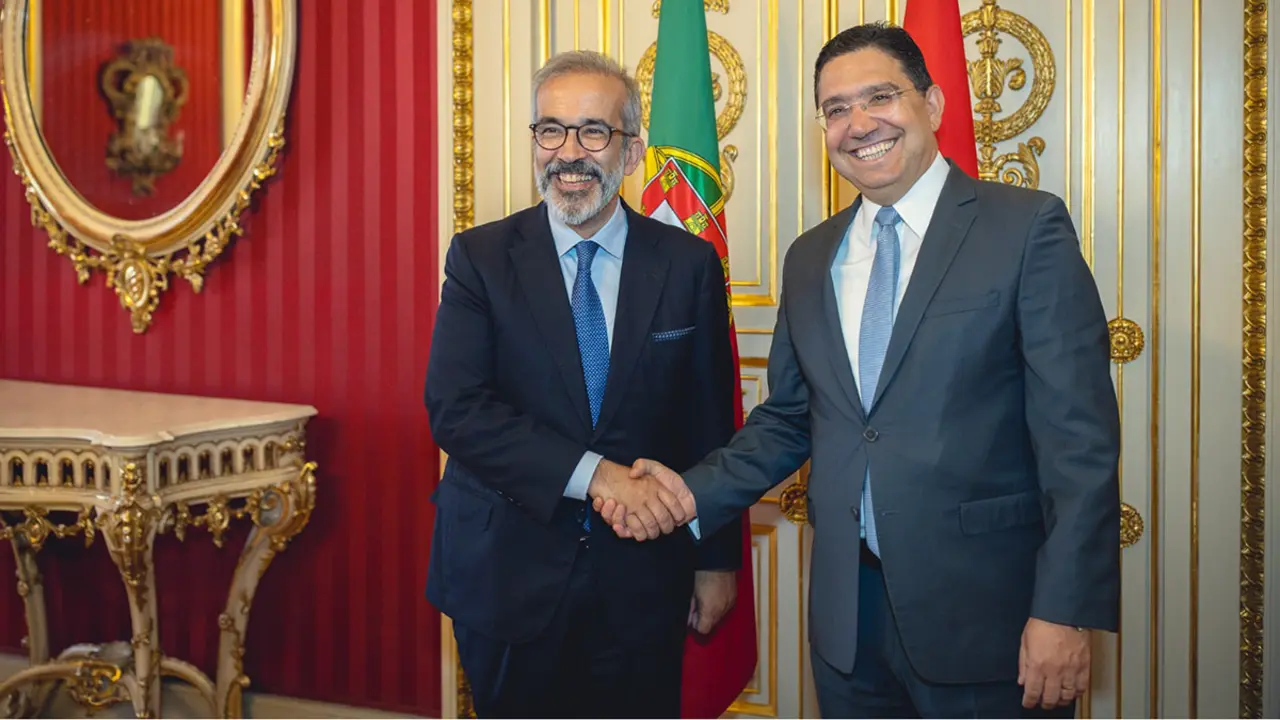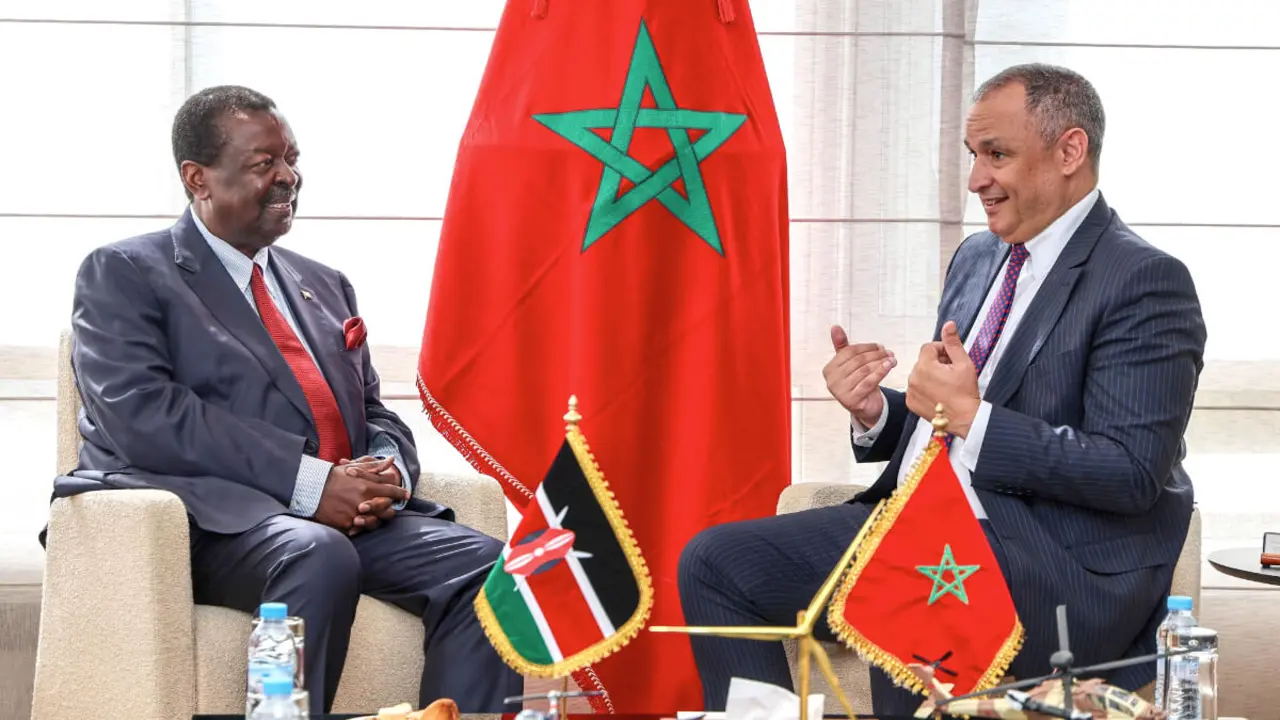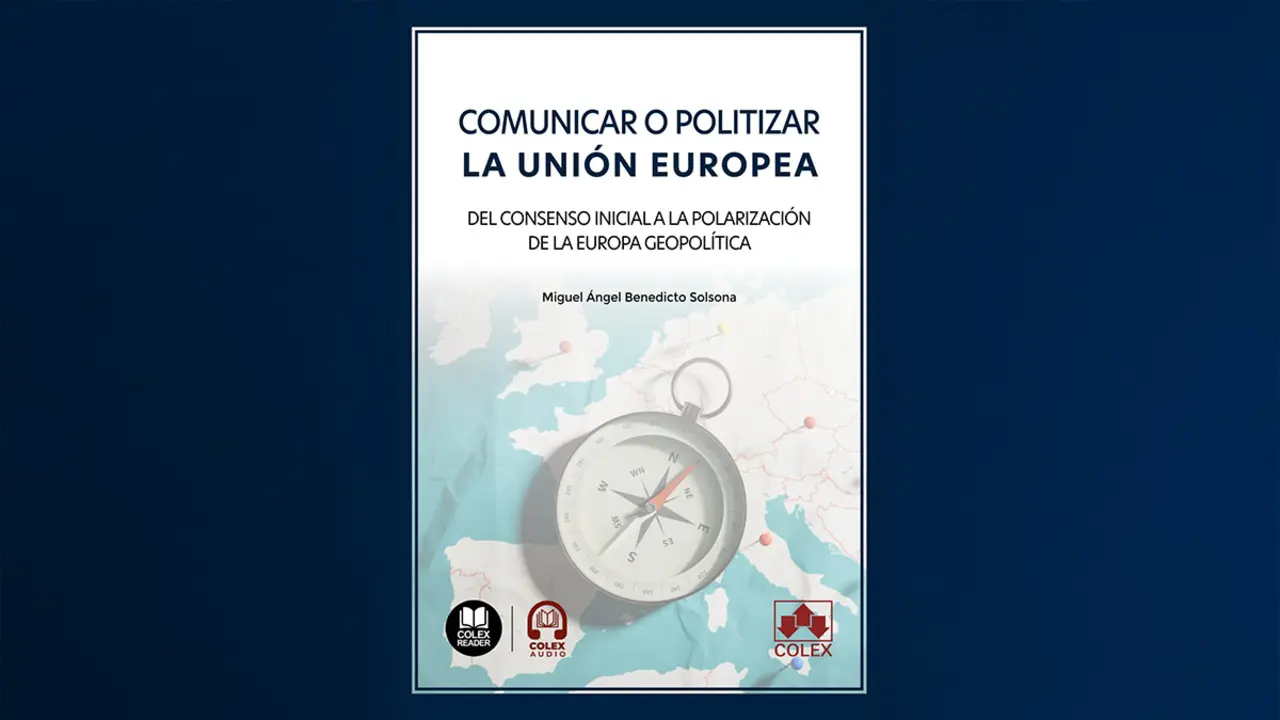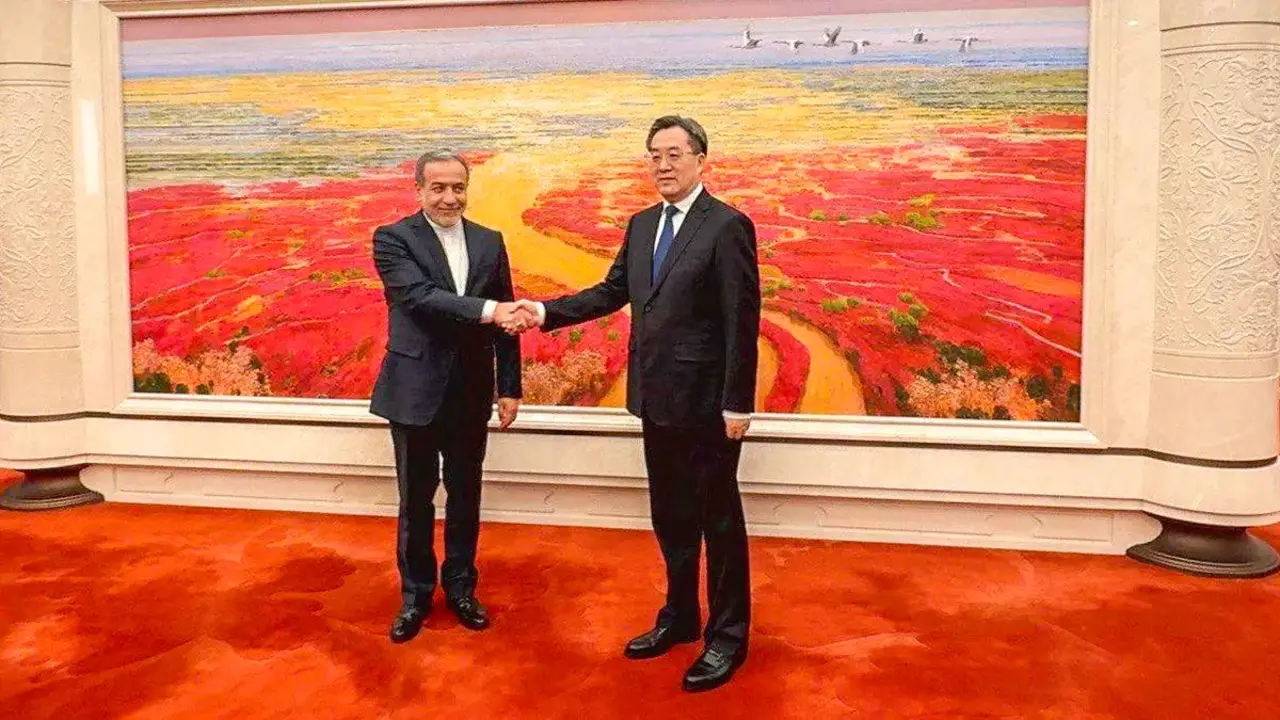Spain and Portugal aligned in the defence of democracy at the 2nd La Toja Forum in Lisbon
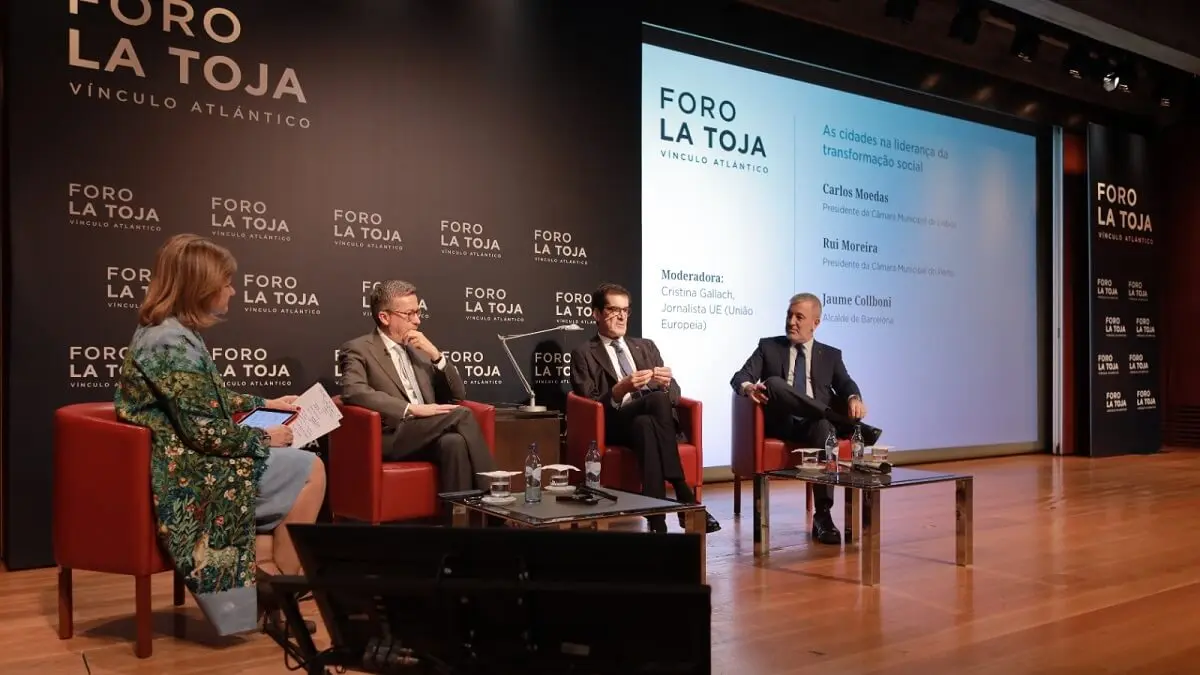
- A future for democracy
- Five decades of progress
- The table of mayors
- The role of democracies and the change of mentality
In the year that marks the 50th anniversary of 25 April in Portugal and in which Spain is also preparing to commemorate five decades of the democratic transition that took place in 1975, politicians and personalities from both countries share the same idea: both have a common path and continue to be aligned in the defence of democracy.
This was one of the main conclusions of the second edition of the La Toja-Atlantic Link Forum held in Lisbon at the Calouste Gulbenkian Foundation. During the opening ceremony, in a video message, the President of the Republic, Marcelo Rebelo de Sousa, spoke of the existence of "impressive cooperation" between Portugal and Spain, evident in the investments in the digital and environmental transition. He also said that "our peoples are united in democracy, freedom and pluralism, but aware of the common challenges they face", listing as the main problems "inequalities, populism, inorganic movements and war in Europe", affirming that "only together will we emerge victorious" and wishing that "the next 50 years can also make our descendants proud" and that both countries "live these 50 years of lived and unfinished democracy".
José Pedro Aguiar-Branco, President of the Portuguese Parliament, explained at the closing ceremony of the second edition that there are "new and important" challenges in democracies, such as "the levels of abstention, the alienation of political elites and populism as a consequence of growing discontent". Aguiar-Branco acknowledged that "solutions differ", but put forward three ideas: "Democracy may not be perfect, but the majority wants to live in democracy. Democracy has a great capacity for adaptation and resilience, and we must always be prepared to defend democracy and not give up on it", which implies the capacity of political forces to "respond effectively to the problems" of the population.
Margarita Robles Fernández, Spain's Minister of Defence, who also spoke on the closing panel, recalled Josep Piqué and pointed out that "democracy is built every day".
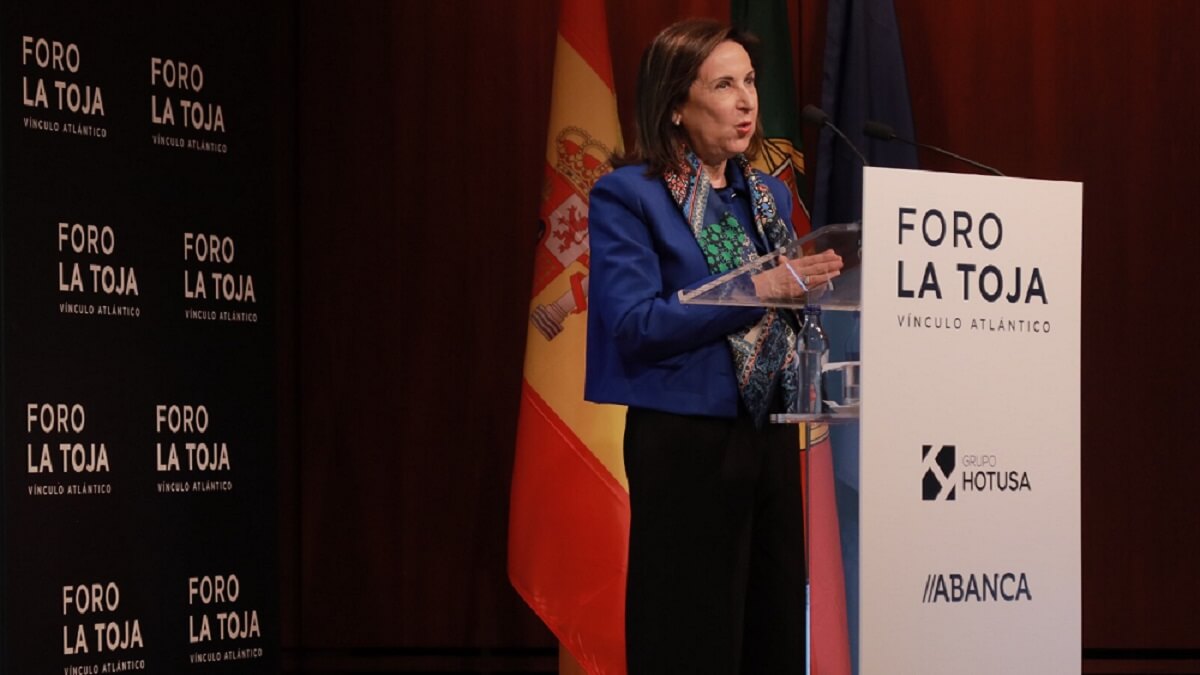
In the opening session, Paulo Rangel, Portuguese Minister of State and Foreign Affairs, stated that Portugal and Spain must converge on the challenges of climate change, but also on relations with Latin and Central America. "The European Union's Atlantic objective involves a permanent and integrated relationship with Mercosur," he said, stressing that integrated action by Portugal and Spain is crucial. He also pointed to three issues that are "absolutely decisive for both countries" and that will mark the bilateral relationship: "Climate change, water and energy". According to the Portuguese diplomatic spokesman, these are the issues that "will mark the compass of the European saga and of the bilateral relationship".
A future for democracy
For Felipe González, former Prime Minister of Spain and one of the speakers at the third and final round table, together with another former Prime Minister of Spain, Mariano Rajoy, and two former Portuguese Prime Ministers, António Costa and Francisco Pinto Balsemão, the main challenges facing the democracies of Portugal and Spain are populism, citing Portugal as an example. "They are capable of preserving the space in which the future of democracy is at stake, which is the space of the centre". He says the problem is not the lack of agreement between the political forces "that have to antagonise each other, offering alternatives". What is missing is avoiding dependence on radical groups in any direction, which condition the wellbeing of centrist politics".
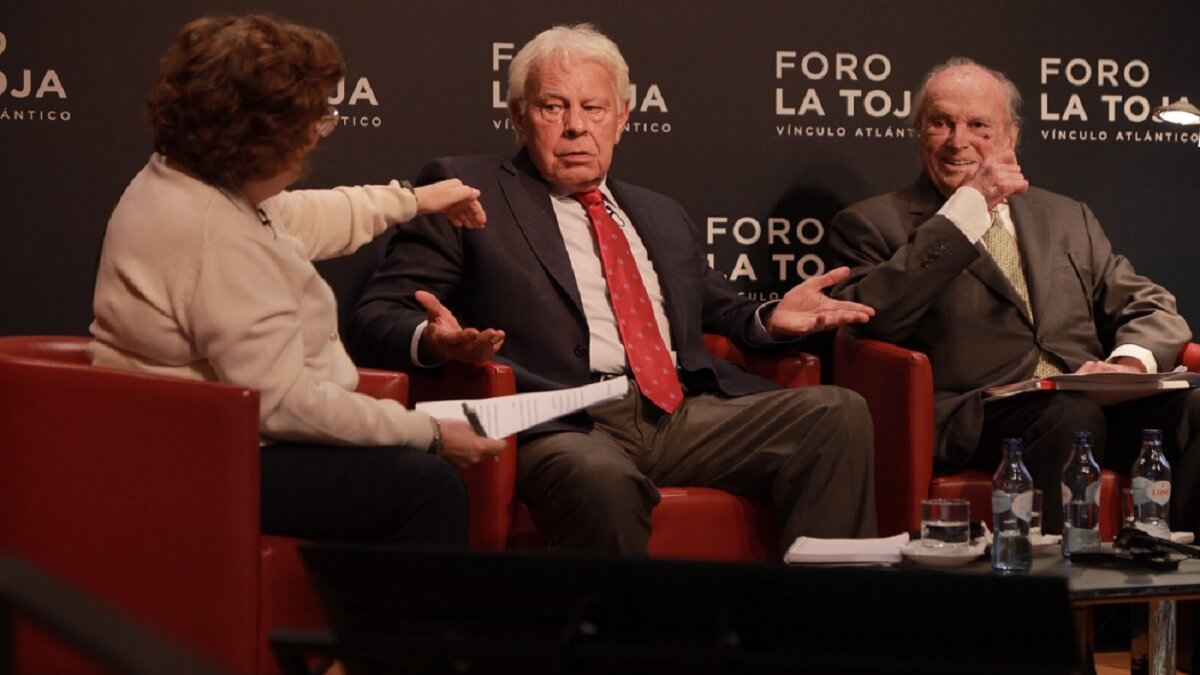
Rajoy focused on the problems of liberal democracies, arguing that "if we all believe in the superior values they represent, we all have to make the effort to preserve them". According to the former Spanish Prime Minister, there are two enemies of today's democracies: "One is in the world, which believed, after the fall of the Berlin Wall, that democracy had been definitively installed, which is not true. The other is at home: it is populism, which is a very varied thing", he said, noting that "the populist can be a xenophobe from the old Eastern Europe, a Spaniard fascinated by tropical dictatorships or a millionaire from New York". The way for liberal democracies to combat populism "is with better governance and a strong economy".
As for Costa, he began by mentioning the privilege of being in a practical class to learn how to be a former prime minister and goes on to argue that the fight against populism must be done by "inserting the new generations", focusing on housing policies which is "a central issue that will endure because there are a number of factors that we did not take into account in time", mentioning that "the feeling of a lack of future is one of the things that most feeds populism". As for the growth of the populist right in Portugal in the last legislative elections, the former Prime Minister downplayed the importance of this: "We should not overestimate the importance of the last elections, which took place in strange conditions". There is no point in exaggerating the interpretation of these results," he said, advocating "giving time for things to return to normal".
He also pointed to "the terrible problem" among young people of having no prospect of living better than the previous generation as a major challenge. The change in family dynamics and freedom of movement has also meant a change in housing. In addition, "more people are living alone". "Although the population is smaller, housing needs are greater," he said.
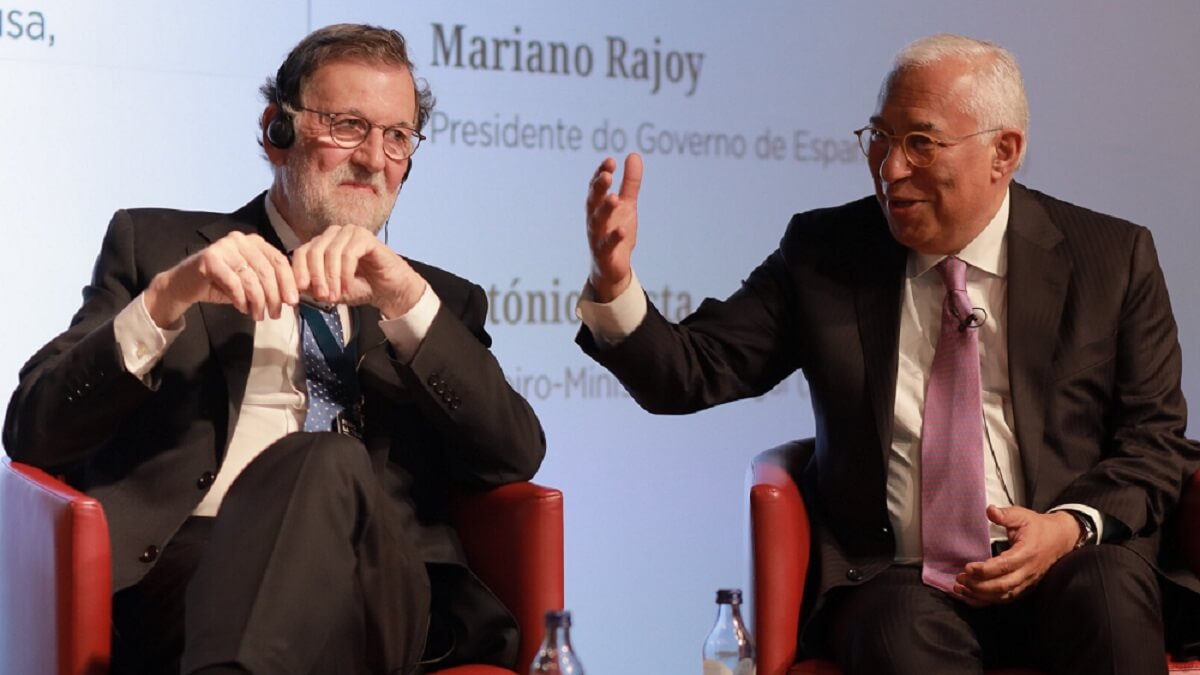
Five decades of progress
The first round table of the day dealt with the historical trajectory of the democracies of Portugal and Spain and how the 25th April, which marked the Portuguese revolution, influenced the Spanish democratic process. The participants were Augusto Santos Silva, former President of the Portuguese Parliament, Antón Costas, President of the Spanish Economic and Social Council, and António Costa Pinto, Portuguese professor, historian and lecturer.
Santos Silva, who was President of the Portuguese Parliament between 2022 and 2024, reminded the panel that "Portugal's accession to the European Communities was not just a political decision, it was an act of political voluntarism by Mário Soares", former Prime Minister and former President of Portugal, pointing out that "with the exception of Greece, the group was made up of the nine richest countries in Europe", which meant "that what was statist would have to be corrected". This "political voluntarism" was met with the openness of the historically migrant Portuguese people, who contributed to the success of European integration. "In contrast to the economic and business elites, the people were cosmopolitan and modern," he said.
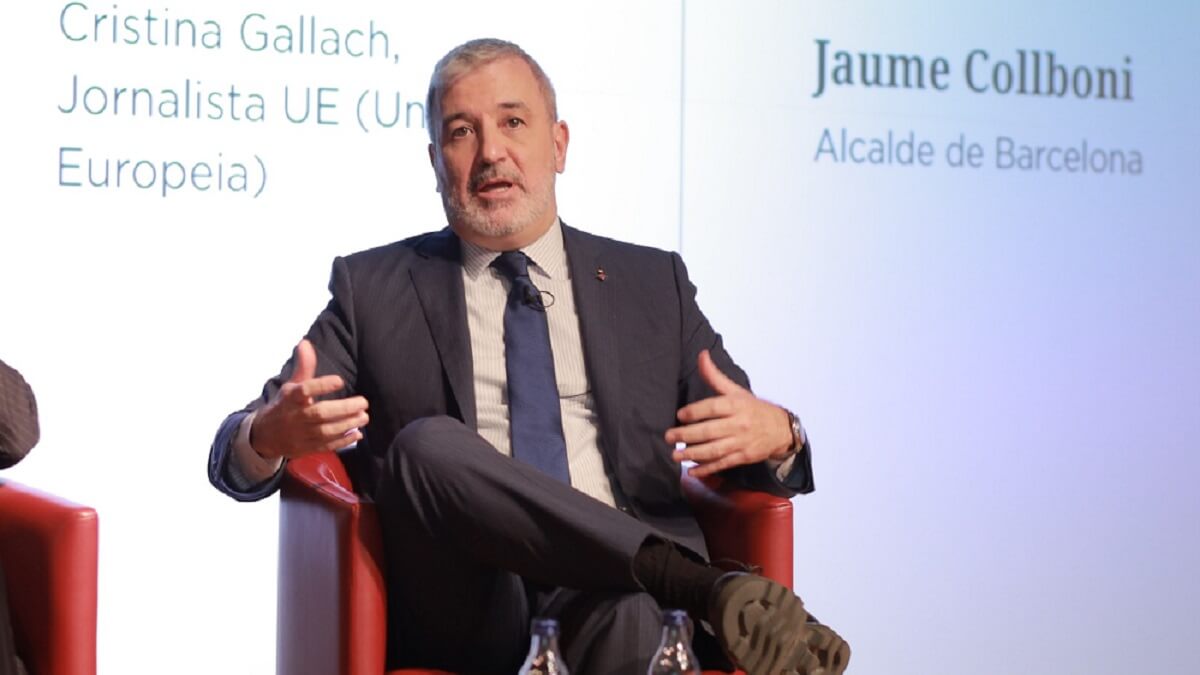
The table of mayors
This was followed by a round table discussion with the mayors of Lisbon, Carlos Moedas, Porto, Rui Moreira, and Barcelona, Jaume Collboni. All of them identified housing as the most urgent problem to be solved. The mayor of Lisbon pointed out that "today, the challenge of housing is also for the working classes" and not only for the poorest, as was previously the case. "It cannot be solved with political ideology", he continued, pointing out that both the public and private sectors must be called upon to be part of the solution.
Moreira reiterated that Porto has 13.5% of the population living in social housing and that "the poorest pay an average of 58 euros in rent". He explained that the problem does not belong to the poorest or the richest, but to the middle class because "our economy cannot generate wages to pay for a house". In this sense, Collboni mentioned that any project must involve making cities "more prosperous".
The Lisbon mayor also pointed out that extremes devalue the climate transition or create "panic". In the mayor's view, we must focus on "positive transition measures" and make people realise that "life does not suddenly change for the worse". In the same vein, the mayor of Porto criticised "extremes", recalling Climáximo's actions: "Throwing green balls has no effect".
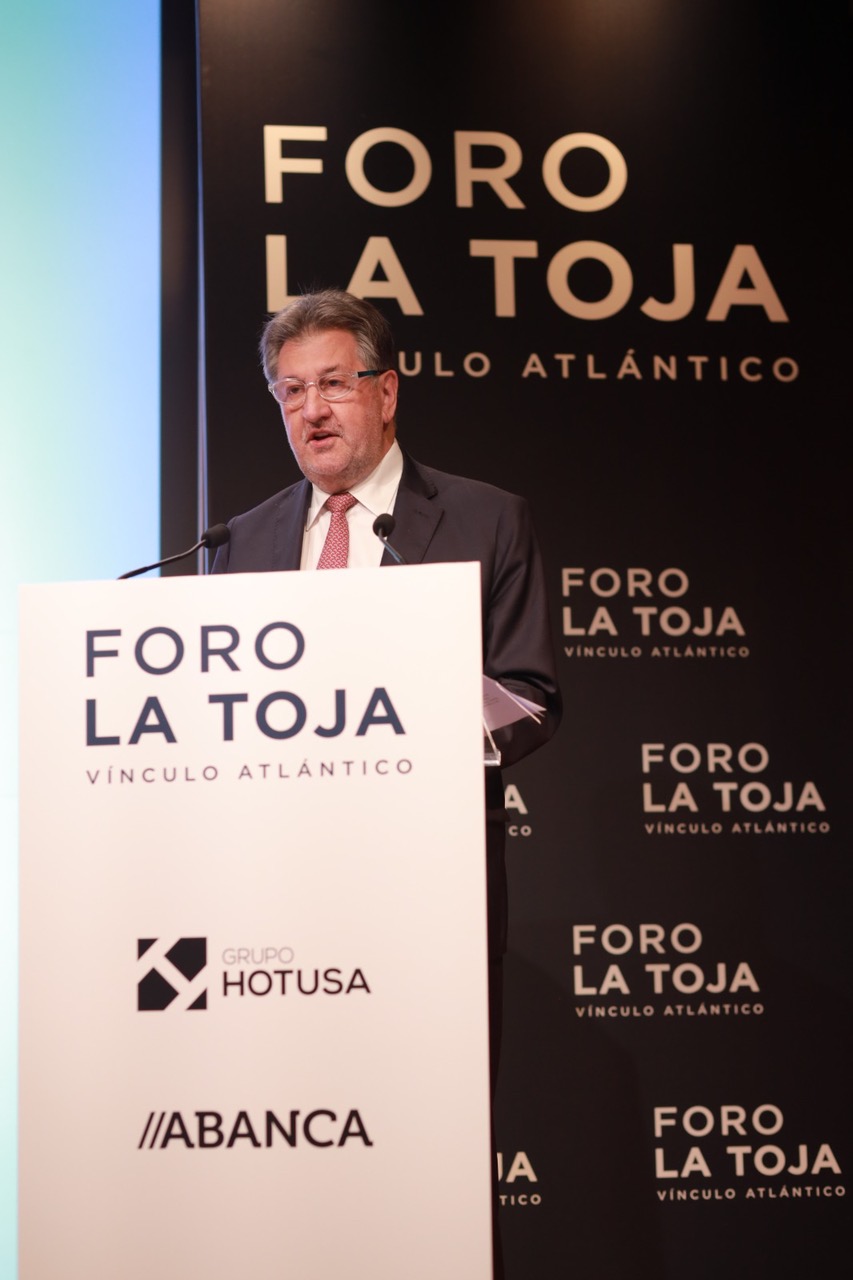
The role of democracies and the change of mentality
In the opening session, Amancio López Seijas, President of the La Toja Forum, recalled the first anniversary of the death of the former President of the Organising Committee of the La Toja Forum, Josep Piqué, and stated that Spain and Portugal, "two countries with common interests, have the same vision of the world" and that it is necessary to "reflect on what kind of world we want for ourselves" and "decide whether we opt for cooperation or confrontation".
The Spanish Ambassador to Portugal, Juan Fernández Trigo, congratulated Portugal "on the changes and on 50 years of democracy, a serene democracy that has changed the destiny of the Portuguese people".
Finally, in the closing session, Carlos López Blanco, President of the Organising Committee of the La Toja Forum, recalled that this is the sixth year since "Amancio López and Josep Piqué initiated this project" with a strong focus on the "Atlantic link" that encompasses "the Europe-United States-Latin America triangle". He added that "this need to promote the Atlantic link led the Forum to come to Lisbon as well". He also pointed out that the last 50 years of democracy in the Iberian Peninsula have been the years "of greatest prosperity and progress", concluding that there is great pride "in our dynamic, democratic and pro-European liberalism".


